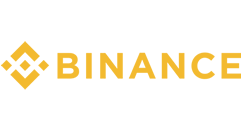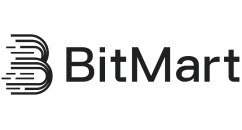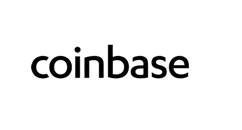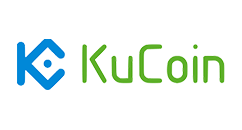Hashflow
$0.07205200
0.07150000
$43,771,257
Total Market Cap
1,000,000,000 HFT
Circulating Supply
$11,916,656
24h Volume
$43,771,257
Total Market Cap
1,000,000,000 HFT
Circulating Supply
$11,916,656
24h Volume
$43,771,257
Total Market Cap
1,000,000,000 HFT
Circulating Supply
$11,916,656
24h Volume
$43,771,257
Total Market Cap
1,000,000,000 HFT
Circulating Supply
$11,916,656
24h Volume
| # | Signal | Exchange | Type | Age |
|---|


| Logo | Exchange | Price | Pair | Spread | 24h Volume |
|---|---|---|---|---|---|
 |
Binance | $0.0715 | HFTUSDT | $0.00 | $1,756,098 |
 |
BingX | $0.0717 | HFT/USDT | $0.00 | $157,804 |
 |
BitMart | $0.0715 | HFT/USDT | $0.00 | $95,408 |
 |
Bybit | $0.07187 | HFT/USDC | $0.00 | $4,367 |
 |
Coinbase Advanced | $0.0716 | HFT-USD | $0.00 | $482,150 |
 |
Crypto.com | $0.071668 | HFT/USD | $0.00 | $30,553 |
 |
HitBTC | $0.08691 | HFT/USDT | $0.00 | $0 |
 |
HTX | $0.0721 | HFT/USDT | $0.00 | $2,170 |
 |
Kraken | $0.072 | HFT/USD | $0.00 | $11,083 |
 |
KuCoin | $0.0716 | HFT/USDT | $0.00 | $233,888 |
 |
Poloniex | $0.0725 | USDT_HFT | $0.00 | $7 |
Hashflow (HFT) is the native utility token of the Hashflow protocol, a decentralized exchange (DEX) platform that offers zero slippage trading with MEV protection across multiple blockchains. Launched in 2021, Hashflow differentiates itself from other DEXs by using a request-for-quote (RFQ) model instead of the automated market maker (AMM) model common among most decentralized exchanges. The HFT token serves as the governance and utility token within the Hashflow ecosystem.
The Hashflow protocol operates on a unique model that connects traders directly with professional market makers, creating a decentralized yet efficient trading environment. Here's how the Hashflow (HFT) ecosystem works:
Unlike traditional AMMs which rely on liquidity pools and mathematical formulas to determine prices, Hashflow uses an RFQ system where market makers provide custom quotes for each trade. This approach eliminates slippage and protects users from maximal extractable value (MEV) attacks like front-running and sandwich attacks.
Hashflow operates across multiple blockchains including Ethereum, Arbitrum, Optimism, Polygon, Avalanche, and BNB Chain, allowing users to conduct native cross-chain swaps without relying on bridges or wrapped assets, which enhances security and efficiency.
The HFT token has a maximum supply of 1 billion tokens. These tokens are used for governance, staking, and providing various benefits to holders within the Hashflow ecosystem.
Yes, Hashflow (HFT) offers staking opportunities through its "Vaults" feature. HFT holders can stake their tokens to earn rewards from protocol fees generated on the platform. Staking HFT not only provides passive income for token holders but also helps secure the network by increasing token retention and reducing circulating supply.
The staking mechanism includes different tiers and lock-up periods, with longer commitment periods typically offering higher rewards. Stakers also gain increased governance weight in protocol decisions proportional to their staked amount.
Hashflow (HFT) does not offer traditional mining as it does not use a Proof-of-Work consensus mechanism. As a governance token for a DEX, new HFT tokens are not created through mining operations. Instead, all tokens were pre-minted at launch and are being distributed according to the tokenomics schedule.
The HFT token serves multiple purposes within the Hashflow ecosystem:
HFT token holders can participate in governance decisions through the Hashflow DAO, voting on proposals related to protocol upgrades, fee adjustments, treasury management, and other important ecosystem parameters.
Users holding or staking HFT may receive discounts on trading fees when using the Hashflow platform, encouraging platform usage and token retention.
A portion of the trading fees collected by the protocol is distributed to HFT stakers, creating a value accrual mechanism for token holders.
While not traditional mining, Hashflow has implemented various liquidity mining programs where users providing liquidity to the platform can earn HFT tokens as rewards.
Hashflow (HFT) was launched with a structured token distribution designed to ensure long-term protocol sustainability. The total supply of 1 billion HFT tokens was allocated as follows:
The token launch involved both private funding rounds and public distribution events. Most allocations outside the community pool featured vesting schedules spanning several years to prevent market flooding and align incentives for long-term development.
One of Hashflow's key selling points is its ability to offer zero-slippage trades, meaning the price quoted is the exact price executed, without the price impact common on AMM-based exchanges. This feature is particularly valuable for large trades.
Hashflow's architecture allows for seamless integration with other DeFi protocols and applications, enhancing the overall utility of the platform in the broader cryptocurrency ecosystem.
The Hashflow protocol has undergone multiple security audits and implements various safety mechanisms to protect user funds and prevent exploits.
Hashflow (HFT) can be easily traded on various cryptocurrency exchanges using Cryptohopper's automated trading bot. Cryptohopper allows users to set up sophisticated trading strategies for HFT and other cryptocurrencies, execute trades 24/7, and take advantage of market opportunities without constant manual monitoring. Whether you're looking to accumulate more HFT or trade it against other cryptocurrencies, Cryptohopper's platform provides the tools needed for efficient and strategic trading.
As the DeFi ecosystem continues to evolve, Hashflow (HFT) represents an innovative approach to decentralized exchange technology, focusing on efficiency, security, and cross-chain functionality that addresses many pain points of traditional DEX platforms.
Below are the most popular denominations to convert to USD and back into HFT
| HFT | US Dollar |
|---|---|
| 0.01HFT | 0.00USD |
| 0.1HFT | 0.01USD |
| 1HFT | 0.07USD |
| 2HFT | 0.14USD |
| 3HFT | 0.22USD |
| 5HFT | 0.36USD |
| 10HFT | 0.72USD |
| 25HFT | 1.80USD |
| 50HFT | 3.60USD |
| 100HFT | 7.21USD |
| 250HFT | 18.01USD |
| 500HFT | 36.03USD |
| 1000HFT | 72.05USD |
| 10000HFT | 720.52USD |
| 50000HFT | 3,602.60USD |
| 100000HFT | 7,205.20USD |
| US Dollar | HFT |
|---|---|
| 0.01 USD | 0.13878865HFT |
| 0.1 USD | 1.38788653HFT |
| 1 USD | 13.87886526HFT |
| 2 USD | 27.75773053HFT |
| 3 USD | 41.63659579HFT |
| 5 USD | 69.39432632HFT |
| 10 USD | 138.78865264HFT |
| 25 USD | 346.97163160HFT |
| 50 USD | 693.94326320HFT |
| 100 USD | 1,387.88652640HFT |
| 250 USD | 3,469.71631599HFT |
| 500 USD | 6,939.43263199HFT |
| 1000 USD | 13,878.86526398HFT |
| 10000 USD | 138,788.65263976HFT |
| 50000 USD | 693,943.26319880HFT |
| 100000 USD | 1,387,886.52639760HFT |